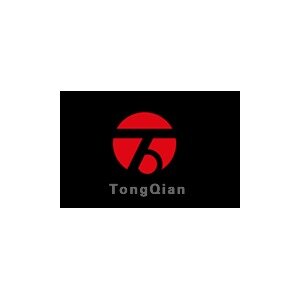Best Licensing Lawyers in China
Share your needs with us, get contacted by law firms.
Free. Takes 2 min.
Or refine your search by selecting a city:
List of the best lawyers in China
About Licensing Law in China
Licensing law in China governs the way in which rights holders can grant permissions to others to use their intellectual property (IP). This includes patents, trademarks, copyrights, and other proprietary rights. The framework involves a range of laws and regulations including the Trademark Law, the Patent Law, and the Copyright Law of the People's Republic of China. The Chinese market is unique due to its size, growth potential, and regulatory environment, which makes understanding its licensing laws essential for businesses and individuals looking to operate or protect their IP in China.
Why You May Need a Lawyer
Engaging with the licensing process in China can be complex and often requires tailored legal advice. Common scenarios where legal help might be necessary include:
- Negotiating and drafting licensing agreements to ensure they comply with Chinese law.
- Enforcing licensing agreements and defending rights against infringements in local markets.
- Navigating government regulations and securing necessary licenses for business operations.
- Handling disputes or litigation that may arise from licensing agreements.
- Advising on legal implications of licensing arrangements in mergers or joint ventures.
Local Laws Overview
Key aspects of local laws relevant to licensing in China include:
- The Contract Law: Governs the formation and execution of licensing contracts; stipulates rights and duties of parties involved.
- Intellectual Property Laws: Includes Patent Law, Trademark Law, and Copyright Law, each with specific provisions for licensing.
- Foreign Investment Law: Impacts licensing when it involves foreign businesses, particularly concerning joint ventures and wholly foreign-owned enterprises (WFOEs).
- Anti-Monopoly Law: May affect certain licensing agreements, particularly those perceived to create unfair competition.
- Technology Import and Export Regulations: Specific rules apply to the transfer of technology to and from China, impacting how licenses are structured.
Frequently Asked Questions
What is a licensing agreement?
A licensing agreement is a legal contract where the licensor grants the licensee the right to use certain intellectual property rights under specified conditions.
Do licensing agreements in China need to be registered?
While not all licensing agreements need to be registered, registering patents and trademarks can provide legal reinforcement and ensure public notice of rights.
How do I protect my intellectual property in China?
Register your IP rights in China, understand local laws, and include robust clauses in your licensing agreements. Consulting a local lawyer is advisable.
Can foreign businesses issue licenses in China?
Foreign businesses can issue licenses, but they need to comply with local regulations, and sometimes work through joint ventures or WFOEs.
Are there specific laws for technology licensing in China?
Yes, there are specific regulations governing technology import and export, which affect licensing agreements related to technology.
What happens if there is a breach of a licensing agreement?
Legal recourse is available, and typically involves negotiation, mediation, arbitration, or litigation, depending on the terms of the agreement.
How do licensing laws affect franchising in China?
Franchising falls under commercial licenses, requiring both licensing agreements and compliance with additional franchising regulations.
What is the role of a legal advisor in licensing projects?
Legal advisors can draft, review, and negotiate licensing agreements, ensuring they comply with laws and adequately protect your interests.
How does licensing revenue get taxed in China?
Licensing revenue is subject to local taxation laws, and it is important to consult a tax advisor to understand applicable taxes and implications.
How long does it take to enforce a licensing agreement in China?
The enforcement process duration varies depending on the complexity of the case and the chosen legal route (mediation, arbitration, or litigation).
Additional Resources
Here are some resources that may prove helpful:
- National Intellectual Property Administration (CNIPA): Offers guidance and services related to IP registration and protection.
- Ministry of Commerce of the People's Republic of China: Provides regulatory information on foreign investments and licensing laws.
- Local Chambers of Commerce: Can offer advice and networking opportunities with local businesses and legal experts.
- Licensed law firms in China: Many firms specialize in IP and can provide expert legal advice and services.
- International trademark and patent offices: Useful for understanding the global implications of Chinese licenses.
Next Steps
If you need legal assistance in licensing, consider taking the following steps:
- Identify the specific nature of your licensing needs and challenges.
- Research licensed law firms in China that specialize in IP and licensing law.
- Schedule a consultation to discuss your specific case and seek tailored advice.
- Prepare necessary documentation related to your intellectual property and any existing agreements.
- Stay informed of any changes in local laws and regulations affecting your licensing arrangements.
Lawzana helps you find the best lawyers and law firms in China through a curated and pre-screened list of qualified legal professionals. Our platform offers rankings and detailed profiles of attorneys and law firms, allowing you to compare based on practice areas, including Licensing, experience, and client feedback.
Each profile includes a description of the firm's areas of practice, client reviews, team members and partners, year of establishment, spoken languages, office locations, contact information, social media presence, and any published articles or resources. Most firms on our platform speak English and are experienced in both local and international legal matters.
Get a quote from top-rated law firms in China — quickly, securely, and without unnecessary hassle.
Disclaimer:
The information provided on this page is for general informational purposes only and does not constitute legal advice. While we strive to ensure the accuracy and relevance of the content, legal information may change over time, and interpretations of the law can vary. You should always consult with a qualified legal professional for advice specific to your situation.
We disclaim all liability for actions taken or not taken based on the content of this page. If you believe any information is incorrect or outdated, please contact us, and we will review and update it where appropriate.
Browse licensing law firms by city in China
Refine your search by selecting a city.















